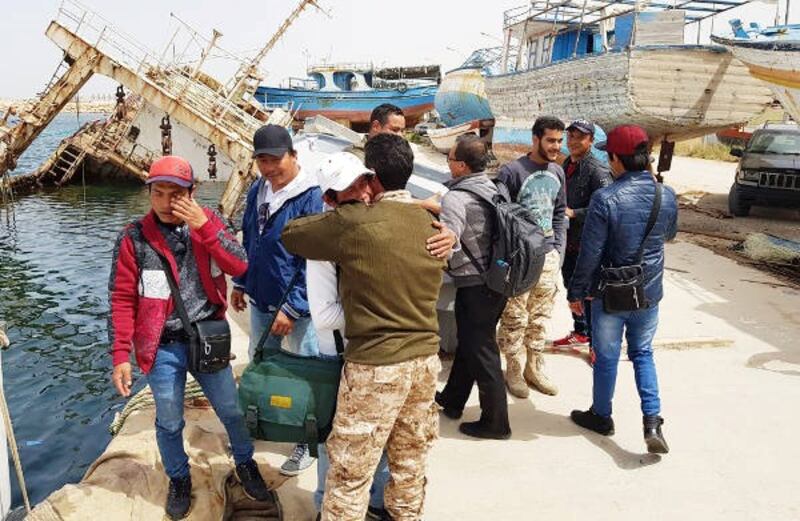Six Indonesian sailors reunited with their families on Monday after six months of captivity by a militant group in Benghazi, Libya, officials said.
Indonesian Foreign Minister Retno Marsudi said efforts to free the sailors faced several delays because of security and political uncertainty in Benghazi, a rebel-held area in Libya.
Extensive negotiations led to the Maltese-flagged fishing ship Salvatur VI crew being released on March 27, Retno said during a handover ceremony at the ministry in Jakarta.
“No ransom paid. The hostages did not receive threats. They were treated well. We even communicated with the hostage-taker group,” she said.
Staff from the Indonesian Embassy in Tripoli, the Ministry of Foreign Affairs and the State Intelligence Agency retrieved the sailors from Benghazi Port and brought them back to Jakarta last weekend, Indonesian officials said.
Captured while fishing
One of the freed sailors, Ronny William, said the crew was sailing from Malta to the Mediterranean Sea to fish when Benghazi-based militants captured them about 23 miles off the Libyan coastal city on Sept. 23, 2017.
“There were only seven people (on board), including the Italian captain. He was only detained for about seven days before he was freed to go home, he was already ill. But they held us for a long time,” William told BenarNews.
The other sailors were identified as Joko Riadi, Hariyanto, Waskita Idi Patria, Saefudin and Mohamad Abudi.
The militants seized all of the crew’s belongings, including mobile phones and an undetermined amount of cash, said Lalu Muhammad Iqbal, an Indonesian foreign ministry official. The government learned about the incident five days later after the ship owner informed the Indonesian Embassy in Rome, Lalu said.
Ronny’s wife, Embun Diarsih, told BenarNews that she was accustomed to communicating only once a week with her husband, who has spent 35 years as a sailor. When Ronny did not contact her for two weeks, she learned about his capture from fellow sailors who work on another fishing boat in Europe.
“After three months, finally there was a contact again,” Embun said. “I had been waiting because I know the process is difficult in a conflict area.”
Lalu said that by the end of December 2017 the militants finally agreed to the embassy’s request to allow the sailors access to communication devices.
“The access made it easier for the government to get a proof of life and monitor the condition of the Indonesian citizens,” Lalu said.
Meanwhile, Ronny said he and his crewmates survived by eating anchovies they caught around the ship.
“We sold some of the anchovies through a militant who happened to be good to us. The money from the sale we used to buy rice and food,” Ronny said, referring to one of the militants guarding them.
While in captivity, Ronny said he witnessed a battle between militants who controlled Benghazi and others aligned with the Islamic State.
“Even a bomb landed near the ship where we were taken hostage,” he said.

